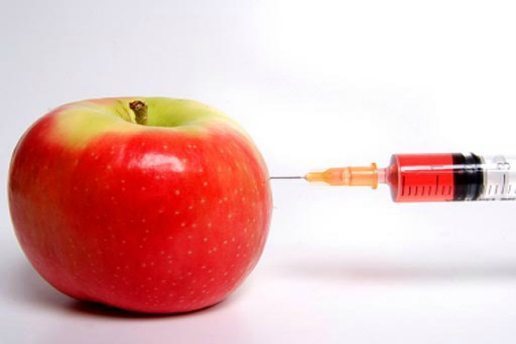The intersection of science and food has always been a controversial topic. The latest area of concern: GMOs, or genetically modified organisms, and their role in genetically modified foods. This issue has recently been in the news due to several state legislatures’ decisions to enact laws that would force food companies to indicate on packaging if a food item contains any genetically modified ingredients. Still confused as to what all of this means for you and your health? BSW is here to help with answers to some basic questions about GMOs and genetically modified foods!
What is a genetically modified food?
A genetically modified food (GM food) is any food item that is produced from a genetically modified organism (GMO). A GMO is any type of organism whose genetic material (DNA) has been altered by some genetic engineering process.
Why are some foods genetically modified?
The reasons for genetically modifying certain foods vary greatly. Some of the more common reasons are to make them less susceptible to disease or being eaten by insects, increase their nutritional value, increase their shelf life, create new flavors or colors of foods, or decrease food prices.
What are some foods that are commonly genetically modified?
Some commonly genetically modified crops are: alfalfa, corn, soy, rice, potatoes, cotton, wheat, sugar beets, papayas, and tomatoes.
Are there health risks associated with genetically modified foods?
This is the most highly controversial area of discussion surrounding GM foods. Most scientific research suggests that consuming foods that contain GMOs is no riskier than consuming non-GMO foods. In fact, some believe that certain GM foods may be more beneficial to health as they can include higher levels of nutrients than non-GMO foods. Because the use of this technology is still somewhat recent, not much evidence has been collected on the relationship between GM foods and human health, and there is some concern, that there are greater, unknown, long-term risks associated with GM foods. Some believe that continued exposure to GMOs may lead to antibiotic resistance, increased food allergies, and other health complications. There is also worry that GMOs have a greater impact on the environment, and could potentially disrupt the biodiversity of the planet.
Is the government doing anything about GMOs?
Currently, the US government does not require food manufacturers to place labels on foods to indicate whether or not they contain genetically modified ingredients. Most GMO and non-GMO advocacy takes place on a non-governmental level. The leading advocacy group is the Non-GMO Project, which provides “Non-GMO Project Verified” seals to food companies that meet their standards. This past March, Whole Foods Market announced that by 2018, all foods in their US and Canada stores will be required to have labels indicating the presence of GMO ingredients, becoming the first national grocery store to take such action. Some local governments, however, are starting to take action. Earlier this month, Connecticut became the first state to require GMO food labeling, and other states like Washington and Vermont are also in the process of enacting this type of legislation.
What do you think of GMOs? Do you think food labels should be required?
Feature image via










![Daily Bite [Make]: Philly Cheesesteak Stuffed Bell Peppers](https://dashofwellness.com/wp-content/uploads/2013/01/Philly-Cheesesteak-Stuffed-Pepper-Daily-Bite-1-100x70.png)
